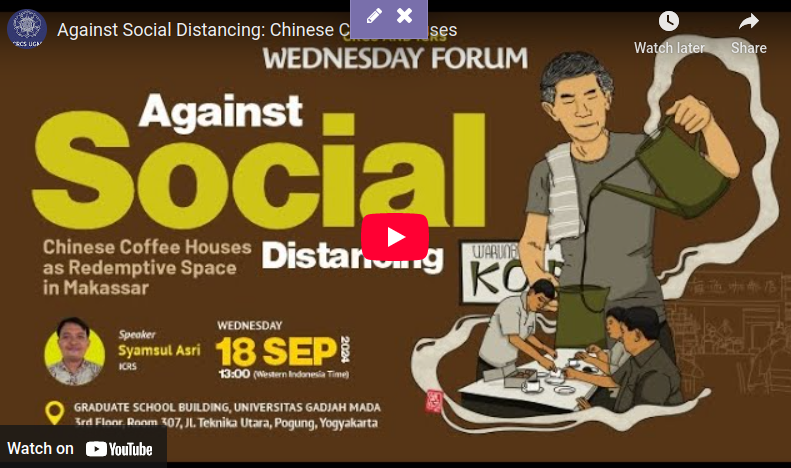
Chinese-owned coffee houses have been operating since the 18th century all over Makassar, where Muslims of Buginesse and Makassarian backgrounds come to drink coffee as a daily activity. These traditionally managed cafes served as sites for intercommunal exchange, social cohesion, and coexistence amongst predominantly Muslims non-Chinese (Makassar and Buginese ethnic groups) with Chinese Buddhist, Confusianist, and Christian adherents even amid the many racial purges against Chinese citizens because of their perceived outsiderness and classed status, the last of which took place in 1998 predating the downfall of Soeharto`s regime.
The unexpected conditions like covid-19 pandemic established patterns of ethnic relations condition responses to novel situations in a way that helps deal with the new situation in an effective manner that ultimately benefits the folks involved in the transactions. This study hypothesizes that regardless of the previous racial purges in the past or the current Covid-19 pandemic policy restrictions, social harmony is kept maintained successfully between the so-called pribumi and cina. One of the dynamics that provide power for such harmony is found in Chinese coffee houses that played and continue to play a strategic role in preserving encounters between different but intimate interreligious and interethnic subjects, this time against national government socially dividing Covid restrictions. Syamsul Asri is lecturer at inter-religious studies program at Universitas Gadjah Mada where previously he studied and presented doctoral thesis titled Global Husaini ldentity Formation: An Interpretive Approach to Arbain Walk. Earlier version of this presentation was panelled at 2023 Association for Asian Studies conference in Boston, USA.as Redemptive Space in Makassar.
